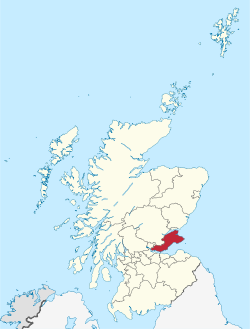 | ||
| Fife, Scotland - Credit Wikpedia |
#10,885
The avian flu outbreak reported on Monday in Scotland has been officially confirmed as what was already suspected; a Low Path H5N1 virus. LPAI viruses are considered less dangerous than high path (HPAI) viruses, but have the potential to mutate to greater pathogenicity if not controlled.
The virus is being described as `quite distinct' from the more dangerous Asian H5N1 virus, but we have little other information at this time.
It will be of considerable interest to find out if this virus is similar to the LPAI H5 viruses currently plaguing southern France. Over the past 7 months we've seen an unusual number of novel H5 and H7 flu outbreaks - both LP and HP - in France, Germany, and the UK.
This fromt the Scottish Government Website:
Avian influenza has been formally confirmed on a poultry farm near Dunfermline.Avian influenza officially confirmed
13/01/2016 15:40Cull underway after very mild strain of H5N1 identified on Dunfermline farm.
Laboratory tests have identified a very mild strain of the H5N1 virus and a humane cull of almost 40,000 birds has now begun.
Restrictions on the movement of poultry and birds for one kilometre around the affected premises remain in place.
Chief Vet Sheila Voas said:
“The lab has now formally confirmed the presence of a very mild form of H5N1 avian influenza on a poultry farm near Dunfermline. It is important to stress that this strain is quite distinct from the highly pathogenic form of H5N1 that has caused significant problems over the past decade or so around the world.
“Robust precautionary measures have been in place since suspicion of disease was first reported, in line with our well-rehearsed contingency plans for dealing with avian influenza, and so today’s formal confirmation is something of a technicality.
“The process of humanely culling all of the birds on the farm is now underway, and the one kilometre restrictions around the premises will remain in force for 21 days after preliminary cleansing and disinfection.
“The eggs supplied by this broiler breeder unit are not for human consumption but are sent to a company hatchery. As a precaution, those eggs are being destroyed and the movement of poultry or poultry products at that site is restricted until that process is complete.
“Investigations into the possible source of this infection are at an early stage, but it is normal for such viruses to circulate among wild bird populations, especially waterfowl. Therefore it is important that poultry keepers remain vigilant for any signs of disease and to ensure they are maintaining good biosecurity on their premises.”
(Continue . . . )